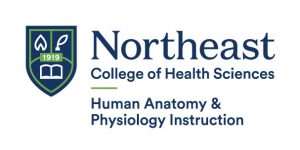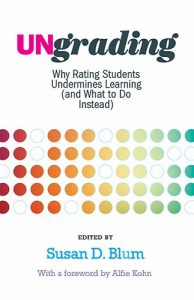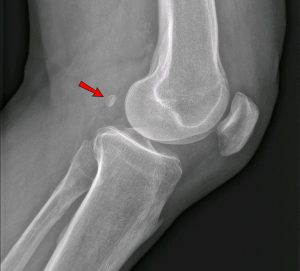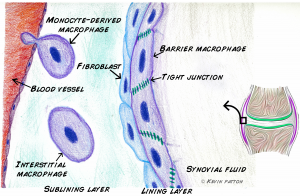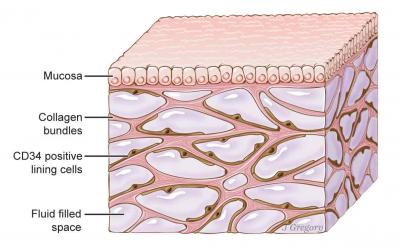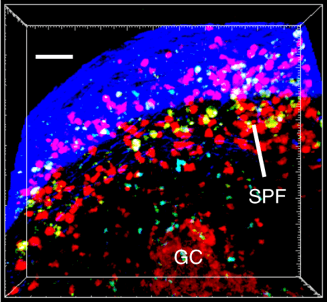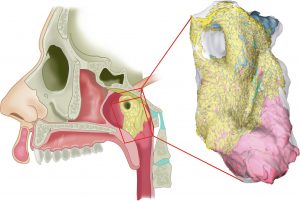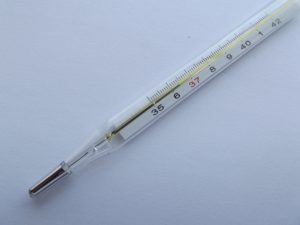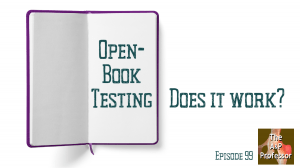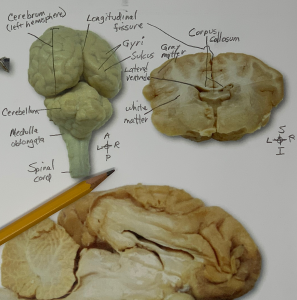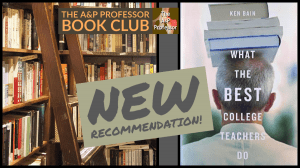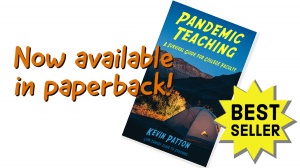Dr. Staci Johnson joins host Kevin Patton for a chat about how she uses ungrading with standards-based grading in her anatomy and physiology course. What is ungrading? Can one ease into it? Does it work? Plus, a related Book Club recommendation!
00:00 | Introduction
00:48 | Ungrading
03:05 | Sponsored by AAA
03:41 | Dr. Staci Johnson
24:06 | Sponsored by HAPI
24:55 | More Ungrading
45:12 | Sponsored by HAPS
45:52 | Long Winter's Nap
48:32 | Book Club: Ungrading
51:43 | Staying Connected
★ If you cannot see or activate the audio player, go to: theAPprofessor.org/podcast-episode-106.html
🏅 Apply for your credential (badge/certificate) for listening to this episode: theAPprofessor.org/podcast-episode-106.html/#badge
❓ Please take the anonymous survey: theAPprofessor.org/survey
☝️ Questions & Feedback: 1-833-LION-DEN (1-833-546-6336)
✔️ Follow The A&P Professor on Twitter, Facebook, Blogger, Revue, Tumblr, or Instagram! @theAPprofessor
📰 Get the almost-daily TAPP Science & Education Updates theAPprofessor.org/updates
The more their attention is directed to how well they’re doing, the less engaged they tend to be with what they’re doing. (Susan D. Blum)
Ungrading
2 minutes
Recent episodes of this podcast have called into question the common practices in grading, which leads us to a discussion of the movement called ungrading in this episode. In later segments, we chat with Dr. Staci Johnson of Southern Wesleyan University, who is experimenting with ungrading in her courses.
★ Staci Johnson's website stacinjohnson.com
★ Grading for Proficiency | Book Club: The One World School House | TAPP 103
★ twitter.com/theAPprofessor Please follow @theAPprofessor to join the conversation!
★ Ungrading: an FAQ (from Jesse Stommel, a veteran of ungrading) AandP.info/ungrading-faq-1fcf92
★ Grades are dehumanising, but ‘ungrading’ is no simple solution (also from Jesse Stommel) AandP.info/grades-dehumanising-e6a0dc
Sponsored by AAA
0.5 minutes
A searchable transcript for this episode, as well as the captioned audiogram of this episode, are sponsored by the American Association for Anatomy (AAA) at anatomy.org.
Don't forget—HAPS members get a deep discount on AAA membership!
Dr. Staci Johnson
20.5 minutes
The first of a two-part conversation, Staci Johnson explains what she means by ungrading with standards-based grading. Then she begins her description of ways she's been implementing these strategies in her courses.
★ Ungrading (episode 350 of Teaching in Higher Ed podcast with guest Susan D. Blum, editor of Ungrading book; mentioned in this episode) AandP.info/susan-blum-dcf0a1
★ Ungrading: Why Rating Students Undermines Learning (and What to Do Instead) (book by Susan D. Blum mentioned in this episode) https://geni.us/GY9Ds6
★ Specifications Grading: Restoring Rigor, Motivating Students, and Saving Faculty Time (book by Linda B. Nilson mentioned in this episode) geni.us/QBoWd9W
★ HAPS Learning Outcomes (from home page, navigate to Resources > Learning Outcomes) theAPprofessor.org/haps
Sponsored by HAPI Online Graduate Program
0.5 minute
The Master of Science in Human Anatomy & Physiology Instruction—the MS-HAPI—is a graduate program for A&P teachers, especially for those who already have a graduate/professional degree. A combination of science courses (enough to qualify you to teach at the college level) and courses in contemporary instructional practice, this program helps you be your best in both on-campus and remote teaching. Kevin Patton is a faculty member in this program at Northeast College of Health Sciences. Check it out!
More Ungrading
20 minutes
Second of our two-part conversation with Staci Johnson about ungrading with standards-based grading in the anatomy and physiology course. In this segment we learn more about how things are working in Staci's courses.
Sponsored by HAPS
0.5 minute
The Human Anatomy & Physiology Society (HAPS) is a sponsor of this podcast. You can help appreciate their support by clicking the link below and checking out the many resources and benefits found there. Watch for virtual town hall meetings and upcoming regional meetings!
Long Winter's Nap
2.5 minutes
This is the last episode of 2021. The next episode is planned for release in the third week of January 2022. That episode will be a look back at the last year, including checking out how Kevin's predictions from last year's January episode worked out. There will be new predictions for the coming year, plus some goals for new habits and new things to try. Why not call in your predictions or plans for the upcoming year? The hotline is open!
86 | What a Year! | Pandemic Teaching & More | A Reflection (last year's January episode)
Book Club
3 minutes
Our new recommendation for The A&P Professor Book Club for Anatomy and Physiology Faculty is:
★ Ungrading: Why Rating Students Undermines Learning (and What to Do Instead)
★ Edited by Susan D. Blum
★ Book club entry: TAPP Book Club #42
★ Get your digital credential for reading this book: TAPP Credential B042
If the hyperlinks here are not active, go to TAPPradio.org to find the episode page.
★ More details at the episode page: theAPprofessor.org/podcast-episode-106.html
★ Transcript available in the transcript box: theAPprofessor.org/podcast-episode-106.html
★ Need help accessing resources locked behind a paywall? Check out this advice from Episode 32 to get what you need! my-ap.us/paywall
Take The A&P Professor experience to the next level!
★ theAPprofessor.org/community
Earn cash by referring other A&P faculty to this podcast:
Tools & Resources
★ TAPP Science & Education Updates: theAPprofessor.org/updates
★ Amazon: amzn.to/2r6Qa3J
★ Text Expander: theapprofessor.org/textexpander
★ Rev.com: try.rev.com/Cw2nZ
★ Snagit & Camtasia: techsmith.pxf.io/9MkPW
★ Krisp Free Noise-Cancelling App: theAPprofessor.org/krisp
★ JotForm (build forms for free): theAPprofessor.org/jotform
★ The A&P Professor Logo Items: https://www.teepublic.com/stores/the-a-p-professor
Sponsors
★ Transcript and captions for this episode are supported by the American Association for Anatomy | anatomy.org
★ The Human Anatomy & Physiology Society provides marketing support for this podcast | theAPprofessor.org/haps
★ Distribution of this episode is supported by the Northeast College of Health Sciences online graduate program in Human Anatomy & Physiology Instruction (HAPI) | northeast.edu/hapi
Clicking on sponsor links helps let them know you appreciate their support of this podcast!
Follow The A&P Professor on Twitter, Facebook, Blogger, Revue, Tumblr, or Instagram @theAPprofessor
The A&P Professor® and Lion Den® are registered trademarks of Lion Den Inc. (Kevin Patton)
As an Amazon Associate I earn from qualifying purchases. I may be compensated for links to sponsors and certain other links.
Click here to listen to this episode—or access the detailed notes and transcript.



